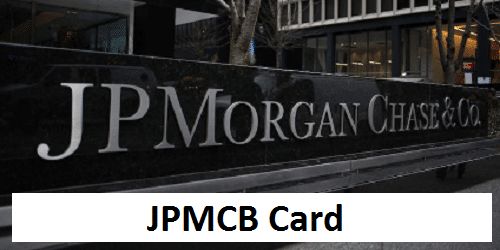When does discover report to credit bureaus? In general, find out reports to the credit bureaus 3 days after your final settlement. Unlike other credit card issuers, they don’t report 0 balances right away. Fortunately, Discover will make out-of-cycle updates to offices if you call and ask.
When Does Discover Report To Credit Bureaus?
Like most major financial institutions, Discover seems to report to all three major credit bureaus about once a month. This report usually occurs around or just after the same time a cardholder’s monthly statement is issued. In some cases, changes to your credit report will be reflected immediately. In other cases, it can take more than a month for changes to appear in a report.
Does Discover report to all 3 credit bureaus?
Discover reports your credit information monthly to the three major agencies – Experian, Equifax, and TransUnion.
How often does Discover report to the credit bureaus?
Like most lenders, find out activities at the credit bureaus once a month. Reported items include payment history, account balance, and account age.
Access Discover Card Credit Reports
You can view your Discover card’s credit report on your monthly statement. They include your credit score on the bill as part of their service.
Which credit bureau does Discover do when checking your credit?
Discover pulls information from one or all three major credit bureaus when checking your credit.
When (and how often) does Discover update the Fico credit score?
Like most lenders, find activity on FICO once a month. Reported items include payment history, account balance, and account age.
When does Discover report late payments?
Discover reports your account information to the credit bureaus once a month. Mention any late (or missed) payments when they send the report.
What information does Discover report to the credit bureaus?
According to the customer service team, Discover reports the following data to credit bureaus every month:
- Payment history
- Current Balance
- It’s safe to assume that they also report the associated information, such as your name and account type.
Which credit bureau does Discover use?
Discover can get information from any of the three major credit bureaus: Experian, Equifax, and TransUnion, but consumer-reported data shows that the bank relies heavily on Equifax for many credit reports, followed by Experian and TransUnion. While the evidence is limited, it appears that Discover relies on specific offices in some states. Don’t count on the data to be reliable enough to guarantee that the bank gets a report from a specific credit bureau when assessing your creditworthiness. We’ve reached out to Discover to ask the bank what office they use, but as of this writing, we haven’t received a response.
Credit bureau used by the state
No statement (other than the banks own) should be considered definitive when it comes to reporting consumer credit upon a thorough investigation of a Discover credit card application. That said, in some states, Discover may favor one office over another.
In Alabama, Colorado, Minnesota, New Mexico, Oklahoma, Oregon, South Carolina, Utah, Connecticut, Maryland, Nevada, Pennsylvania, Illinois, Kentucky, New York, California, and Texas, Discover appears mostly (and in some states almost exclusively) from Equifax. While in New Jersey, Florida, Indiana, Kansas, Louisiana, and New Hampshire, the bank appears to trust Experian, the data suggests Discover trusts TransUnion in Tennessee, Arkansas, North Dakota, and Washington.
Which credit bureau is more accurate?
In the US, Equifax, TransUnion, and Experian remain the top three consumer credit reporting agencies. Credit reports provided by such agencies to banks, corporations, and authorized parties allow lenders and homeowners to assess the potential risk of borrowing or leasing. Every year, the industry makes a significant profit by selling credit information, which is usually provided to agencies by banks and other lenders.
Reports about the same person obtained from different agencies are unlikely to be the same. Reports differ for a myriad of reasons. This makes it nearly impossible to determine which credit bureau is most accurate. Most major lenders use the FICO credit scoring system to estimate your creditworthiness.
Since each score falls within a range (for example, a score between 670 and 739 is considered “good” credit), it is unlikely that there will be extreme differences between the FICO scores issued by the credit bureaus. Minor differences may occur due to differences in the way the score is tabulated.
How do I get a credit report?
The free and easy way to get a credit report is by going to AnnualCreditReport.com, the only website authorized to generate reports for free. We have published a detailed article to walk you through the process. You can also call AnnualCreditReport.com directly at 1-877-322-8228.
Under the law, consumers are entitled to at least one free credit report per year from each of the three major U.S. credit bureaus (Note: From the start of the pandemic through the end of 2022, you are entitled to one free report-free credit per year). week.) Individuals can request reports at any time of the year and are not required to request all three reports at the same time; anyone can request an Equifax report first and then request an Experian report a few months later.
If you sign up for a subscription on a credit bureau’s website, you can generate credit reports, but this generally requires a one-time or subscription fee and does not allow you to access reports from other credit bureaus.
Dispute information about your credit report?
If you find an error in your credit report, you can open a dispute. Prepare your personal information and supporting documentation before submitting your dispute. Dispute mistakes at any credit bureau online, by email, or over the phone. The office you have filed a dispute with will generally investigate your claim and publish its findings after approximately 30 to 45 days.
If the results lead to a change in your credit report, you should receive a free updated copy. If you are not satisfied with the results of the dispute, you can resubmit it with additional supporting information to help your case.
How to build credit with a Discover credit card
Because Discover reports to all three major credit bureaus, you can use your credit card to build credit and improve your credit score.
To build credit with your Discover credit card:
- Use your card regularly: Use your Discover credit card responsibly each month, Discover gives positive ratings to report to the credit bureaus. If you have a low credit limit or are concerned about paying your credit card bill, top up the card for a small recurring purchase (like your Netflix or Amazon subscription).
- Use less than 30% of your credit limit: An important factor in determining your credit score is your credit utilization rate, which is how much of your total credit you use. You want this number to be low, so try to use less than 30% of your credit limit or less than 10% to get an even better rate.
- Pay your bill on time – The most important part of building credit and increasing your credit score is paying your Discover account on time. When you pay your credit card bill, this is also important if you are trying to increase your score. Pay your credit card bill in full on its due date and pay most of it before your statement close date (since that’s when Discover reports your account status) to maximize positive reporting.
- Keep your account open: The length of your credit history also contributes to your credit score, so keep your Discover account open to increase your average credit age.
Conclusion – When Does Discover Report To Credit Bureaus
If you’re concerned about your FICO score while applying for a Discover credit card, check all of your credit reports to make sure your overall credit scores are strong enough to qualify. This strategy also helps you spot any mistakes before the bank mistakenly believes you have a bad credit history. Discover’s pre-approval process can also help you see which of the cards you’re likely to qualify for.
In the long run, it may be more effective to focus on building and strengthening your credit score across the board if you’re not sure your credit score is good enough to succeed.






